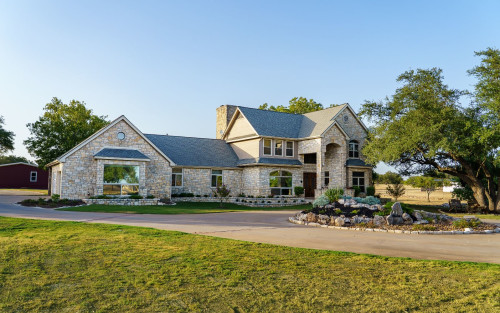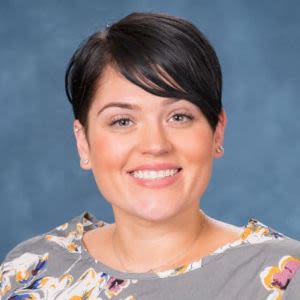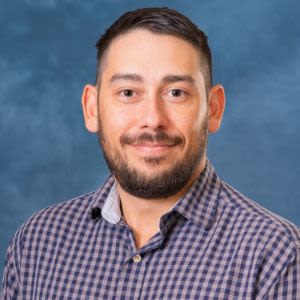






Alta Loma
Verified Center
This provider's information has been quality-checked by Recovery.com's Research Team for accuracy and completeness, including center verification through appropriate third-party organizations.
Treatment Focus
This center treats mental health conditions and co-occurring substance use. You receive collaborative, individualized treatment that addresses both issues for whole-person healing.
Primary Level of Care
Offering intensive care with 24/7 monitoring, residential treatment is typically 30 days and can cover multiple levels of care. Length can range from 14 to 90 days typically.
Treatment Focus
This center treats mental health conditions and co-occurring substance use. You receive collaborative, individualized treatment that addresses both issues for whole-person healing.
Primary Level of Care
Offering intensive care with 24/7 monitoring, residential treatment is typically 30 days and can cover multiple levels of care. Length can range from 14 to 90 days typically.
Private Pay
You pay directly for treatment out of pocket. This approach can offer enhanced privacy and flexibility, without involving insurance. Exact costs vary based on program and length of stay. Contact the center for specific details.
Alta Loma
Alta Loma
About Alta Loma
Set on 20 acres of sprawling countryside, Alta Loma The Ranch provides a safe haven for men to recover from mental health concerns and co-occurring substance use. Their campus offers 3 residential homes and 1 building hosting therapies and wellness activities. Alta Loma treats depression, anxiety/panic disorders, bipolar disorder, schizophrenia, personality disorders, and psychosis.
Well-Rounded Mental Health Recovery
Alta Loma’s treatment is rooted in cognitive behavioral therapy (CBT) to help clients reconstruct their thoughts, boosting self-esteem, hope, and positive perceptions of the world. Their Truthought program focuses on creating positive behaviors and changes for lasting healing. Each week, clients engage in 2+ individual therapy sessions and 1+ psychiatric sessions. Treatment includes life skills development with topics such as communication, self-awareness, changing thought patterns, recognizing triggers, job skills, and household skills. Process groups offer clients a different perspective to healing, practice using empathy, and psychoeducation. Alta Loma encourages clients to engage in recovery groups like NAMI connection and 12-Steps.
A Day at Alta Loma
Alta Loma strives to fill clients’ schedules with various evidence-based and holistic individual and group sessions. On weekdays, clients begin their day with meditation at 9:30 am. Life skills groups occur from 10–12 pm, and then they break for lunch. Clients engage in process groups from 1–3 pm and health and wellness activities from 3–5 pm. After dinner, recovery groups are from 6–7 pm, with free time, and daily goal review from 9:30–10 pm. On weekends, Alta Loma provides time to engage in healthy hobbies as well as therapeutic modalities. Process groups are from 1–3 pm and recovery support groups are from 6–7 pm.
A Therapeutic Recovery Space
Alta Loma’s main house hosts 9 men with 5 cozy, well-appointed bedrooms. Clients have the option to reside in private or semi-private rooms. The cabins, their other 2 on-site residential homes, hold 6 men each. Alta Loma’s fourth on-site building has a cafeteria and modern gym. Their luxurious amenities include a swimming pool, stocked fishing pond, half-mile fitness trail, basketball court, and field with miniature donkeys and goats. Group therapy is often done outside at their several shaded outdoor seating areas.
Highlights from the Center
Highlights
These highlights are provided by and paid for by the center.
Co-Occurring Disorders Treatment
5+ Individual Sessions a Week
Mental Health Disorder Treatment
Men Only
Center Overview
Treatment Focus
This center treats mental health conditions and co-occurring substance use. You receive collaborative, individualized treatment that addresses both issues for whole-person healing.
Pricing and Program Length
Estimated Center Costs
The cost listed here (Private Pay Only: $105,000), is an estimate of program cost. Center price can vary based on program and length of stay. Contact the center for more information. Recovery.com strives for price transparency so you can make an informed decision.
Meet Your Care Team

Dr. Shiva Lam
Medical Director
M.D.

Hayley Amols
Director of Nursing
RN

Jerry Cypert
Director of Clinical Services
M.ED, LPC, LCDC

Maxie Carvajal
Therapist
LMSW

Katie Nelson
Nurse
LVN

George Stark
Case Manager

Amit Mishra
Admissions Specialist




Levels of Care






Your Care Options
Specializations
Schizophrenia
Schizophrenia is a serious mental health condition that causes hallucinations, delusions, and disordered thinking.
Personality Disorders
Personality disorders destabilize the way a person thinks, feels, and behaves. If untreated, they can undermine relationships and lead to severe distress.
Bipolar
This mental health condition is characterized by extreme mood swings between depression, mania, and remission.
Who We Treat
Approaches
Evidence-Based
A combination of scientifically rooted therapies and treatments make up evidence-based care, defined by their measured and proven results.
Individual Treatment
Individual care meets the needs of each patient, using personalized treatment to provide them the most relevant care and greatest chance of success.
Gender-Specific
Separate treatment for men or women can create strong peer connections and remove barriers related to trauma, shame, and gender-specific nuances.
Therapies
1-on-1 Counseling
Patient and therapist meet 1-on-1 to work through difficult emotions and behavioral challenges in a personal, private setting.
Meditation & Mindfulness
A practiced state of mind that brings patients to the present. It allows them to become fully aware of themselves, their feelings, and the present moment.
Mindfulness Therapy
This ancient practice can be mental, emotional, and even spiritual. In meditation, you focus your attention on the present moment without judgement.
Family Therapy
Family therapy addresses group dynamics within a family system, with a focus on improving communication and interrupting unhealthy relationship patterns.
Life Skills
Teaching life skills like cooking, cleaning, clear communication, and even basic math provides a strong foundation for continued recovery.
Psychoeducation
This method combines treatment with education, teaching patients about different paths toward recovery. This empowers them to make more effective decisions.
Twelve Step Facilitation
12-Step groups offer a framework for addiction recovery. Members commit to a higher power, recognize their issues, and support each other in the healing process.
Acceptance and Commitment Therapy (ACT)
This cognitive behavioral therapy teaches patients to accept challenging feelings and make the appropriate changes to reach personal goals.
Conditions We Treat
Schizophrenia
Schizophrenia is a serious mental health condition that causes hallucinations, delusions, and disordered thinking.
Personality Disorders
Personality disorders destabilize the way a person thinks, feels, and behaves. If untreated, they can undermine relationships and lead to severe distress.
ADHD, ADD
ADHD is a common mental health condition caused by dopamine imbalance. Common symptoms include inattention, hyperactivitiy, and impulsivity.
Anger
Although anger itself isn't a disorder, it can get out of hand. If this feeling interferes with your relationships and daily functioning, treatment can help.
Bipolar
This mental health condition is characterized by extreme mood swings between depression, mania, and remission.
Obsessive Compulsive Disorder (OCD)
OCD is characterized by intrusive and distressing thoughts that drive repetitive behaviors. This pattern disrupts daily life and relationships.
Post Traumatic Stress Disorder
PTSD is a long-term mental health issue caused by a disturbing event or events. Symptoms include anxiety, dissociation, flashbacks, and intrusive thoughts.
Self-Harm
The act of intentionally harming oneself, also called self-injury, is associated with mental health issues like depression.
Suicidality
With suicidality, a person fantasizes about suicide, or makes a plan to carry it out. This is a serious mental health symptom.
Substances We Treat
Alcohol
Using alcohol as a coping mechanism, or drinking excessively throughout the week, signals an alcohol use disorder.
Benzodiazepines
Benzodiazepines are prescribed to treat anxiety and sleep issues. They are highly habit forming, and their abuse can cause mood changes and poor judgement.
Chronic Relapse
Consistent relapse occurs repeatedly, after partial recovery from addiction. This condition requires long-term treatment.
Co-Occurring Disorders
A person with multiple mental health diagnoses, such as addiction and depression, has co-occurring disorders also called dual diagnosis.
Cocaine
Cocaine is a stimulant with euphoric effects. Agitation, muscle ticks, psychosis, and heart issues are common symptoms of cocaine abuse.
Drug Addiction
Drug addiction is the excessive and repetitive use of substances, despite harmful consequences to a person's life, health, and relationships.
Ecstasy
Ecstasy is a stimulant that causes intense euphoria and heightened awareness. Abuse of this drug can trigger depression, insomnia, and memory problems.
Heroin
Heroin is a highly addictive and illegal opioid. It can cause insomnia, collapsed veins, heart issues, and additional mental health issues.
Psychedelics
Hallucinogenic drugs—like LSD—cause euphoria and increased sensory experiences. When abused, they can lead to depression and psychosis.






